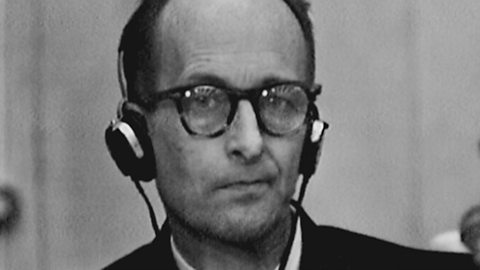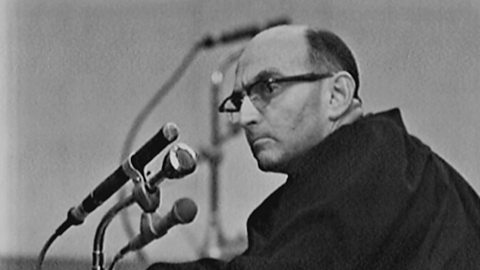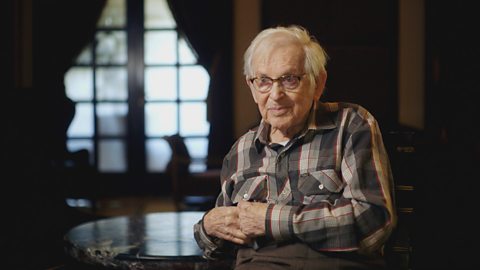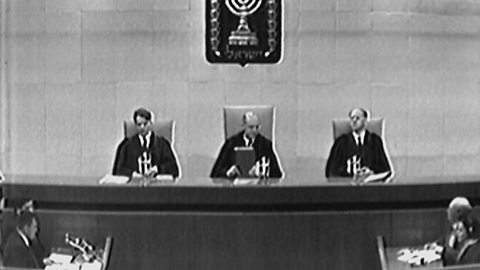Video summary
The trial of Adolf Eichmann in 1961 became the first documentary television series to be broadcast around the world. It was a historic and ground-breaking moment in revealing some of the experiences and tragedies of the Holocaust and the deaths of some six million Jews. But broadcasting the trial did not come without objections.
We hear from historian, Professor David Cesarani, who suggests that the trial was important because it told the Jewish story of World War Two for the first time, and for humanising and dramatising a story so vast that it was almost inconceivable.
On the other hand, Gabriel Bach, who was deputy prosecutor at the trial, recalls objections to its broadcast from a delegation of Israeli teachers and the feelings of shame they expressed that millions of people had allowed themselves to be destroyed without defending themselves.
Television producer, Milton Fruchtman, talks about how he realised the cameras could impact on the evidence, potentially distracting the witnesses, and the solution they came up with to solve this problem.
And director Leo Hurwitz’s son, Tom, tells how his father's camerawork lent to the tension and watchability of the trial, especially the close-ups of Eichmann's facial expressions combined with cutaways to a shocked audience.
This short film is from the 91Čȱ¬ series, The Eichmann Show.
Due to the sensitive nature of the subject matter, we strongly advise teacher viewing before watching with your pupils.
Teacher Notes
The trial of Adolf Eichmann revealed how rigorous the prosecution team were in the collection of evidence and ensuring its credibility. Over one hundred witnesses were selected for the trial and sixteen thousand documents were presented.
Pose questions to students such as:
What would define a credible witness in a trial of this nature?
To what extent can the live recording of a trial impact on witnesses' testimony?
Extension questions could be:
In what ways might the camera influence feeling towards the accused? In this case, Adolf Eichmann.
Why was the programme produced?
Who produced it?
How does the content impact on viewers?
Do you feel it is unfairly biased? Why or why not?
Even if the recording is biased, is it still a useful historical record?
Extension debate could be:
"In that courtroom in Jerusalem, people heard the voices of those victims in a way that they hadn't heard them before."(Deborah Lipstadt, Professor of Modern Jewish History and Holocaust Studies at Emory University)
How far do agree that the trial of Adolf Eichmann has come to characterise our impression of Holocaust history and learning?
This short film will be relevant for teaching history. This topic appears in OCR, Edexcel, AQA, WJEC KS4/GCSE in England and Wales, CCEA GCSE in Northern Ireland and SQA National 4/5 in Scotland.
Adolf Eichmann: Architect of the Holocaust. video
Using a combination of archive footage, dramatisation and interviews with people involved in the television production and the trial, this short film introduces students to the groundbreaking trial of Adolf Eichmann.

How far can one person be held responsible for the Holocaust? video
On 11th December 1961, Adolf Eichmann was pronounced guilty of all charges against him and sentenced to death. But how far can responsibility for the Holocaust be attributed to one man?

How Adolf Eichmann's trial revealed the horrors of Auschwitz. video
Historians and witnesses explain how the Adolf Eichmann trial was a turning point for Holocaust survivors who found that their testimonies were being taken seriously for the first time.

The Eichmann trial and the State of Israel video
The trial of Adolf Eichmann was an important moment in the development of the State of Israel which was just 13 years old in 1961.
